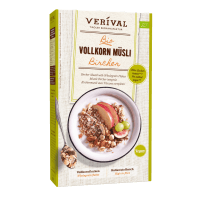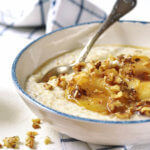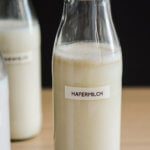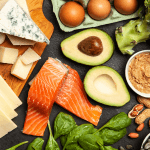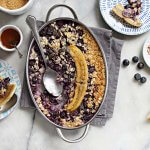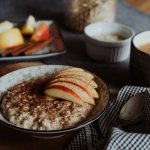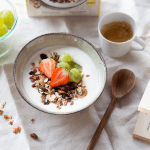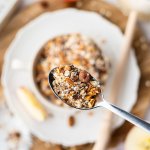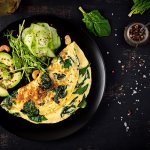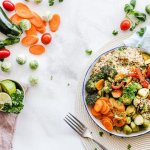What Are Heritage Grains and What Are the Types?
September 16, 2020- Breakfast
- Gesund leben
- Healthy lifestyle
- Nutrition
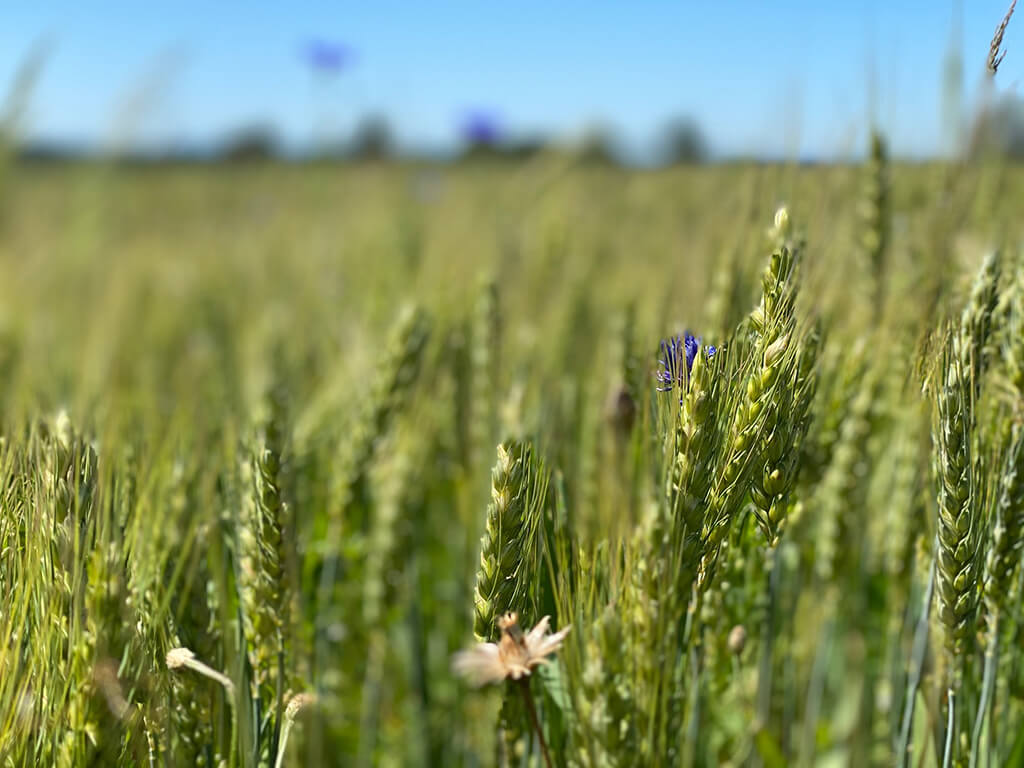
Heritage grains – you’ve probably already heard of this particular type of grain. As the name suggests, it has something to do with the ancient form of grain. Heritage means “old”, but if you think that “old” in this sense is something negative, you are mistaken.
But what are heritage grains and what is it about these “old” grains? And what do we at Verival have to do with this special grain? We’ll tell you all about it in our article on the subject of heritage grains.
Übersicht
Heritage what? What exactly is heritage grain?
Heritage grain means the original grain varieties that have been largely replaced by modern grain varieties bred for maximum yield. For a few years now, however, the original varieties have been on the upswing and are currently celebrating a great comeback.
Heritage grain has already come a long way – why should we switch back from high-yielding modern wheat to heritage grain cereals? There are a few reasons. Heritage grain is better tolerated than its relatives, it tastes more intense and is more nutritious. If that’s not enough of a reason, it’s also good for the soil and the climate – it promotes biodiversity and protects the soil because the old varieties don’t leach out the soil as much.
Organic farmers especially appreciate that the so-called spelt grains such as spelt, emmer and einkorn are particularly unaffected by environmental influences. Their grain is surrounded by a solid husk that protects them from acid rain, fine dust or spore fungi.
Emmer and einkorn are also characterised by low nutrient requirements and can be grown on dry and lean soils. The special advantage of the original rye is, for example, its strong and fine root system. It penetrates the entire field and prepares it for subsequent vegetable and cereal cultivation.
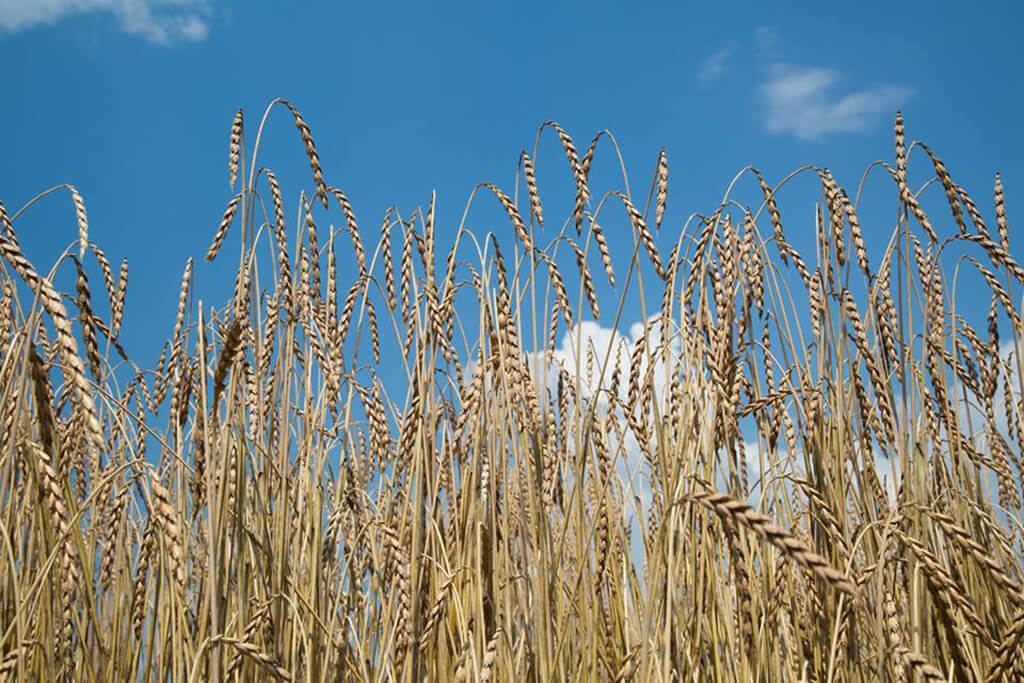
It may be true that modern wheat would certainly be the “simpler” solution – but those who want to treat themselves and the environment responsibly should consider heritage grain. But what about the history of heritage grain?
The long adventure of the original grain – the history
In the mid-1950s, agronomist Peter Zübli came across a fabulous find: he discovered a few grains in a small farm in Buus (Switzerland) that later turned out to be rare white emmer. Subsequently, this heritage grain was included in Pro Specie Rara’s database of old varieties. At that time, no one suspected that these grains would become a success story some 40 years later.
That was when biologist Markus Jenny set up a show garden with old grain varieties, including the rare emmer and einkorn. He wanted to study the diversity of animals and plants in the field. For example, it was scientifically proven that ground-nesting birds, such as the skylark, benefit from the extensive cultivation of emmer and einkorn. In addition to these new perspectives for species conservation, the project brought an additional ecological added value: the farmers in the surrounding area liked this initiative and went along with it. Today, emmer and einkorn are grown organically on around 200 hectares and consistently used to produce sustainable products.
Heritage grains such as emmer, einkorn and spelt were already cultivated thousands of years ago. However, the new cereal varieties bred for maximum yield displaced the original cereals. At the latest with the emergence of the organic wave at the beginning of the 1990s, the robust plants celebrated their revival and are now increasingly cultivated again as high-quality, organically produced foodstuffs, especially in Germany, Austria and Switzerland.
Verival and heritage grains – made for each other!
For several years now, we at Verival have been working together with Prof. Sneyd, a plant breeding expert and technical director of a seed breeding company. This has enabled us to create our own re-cultivation project in Baden-Württemberg, Germany, with the aim of propagating high quality heritage grains and creating unique Verival organic products from them.
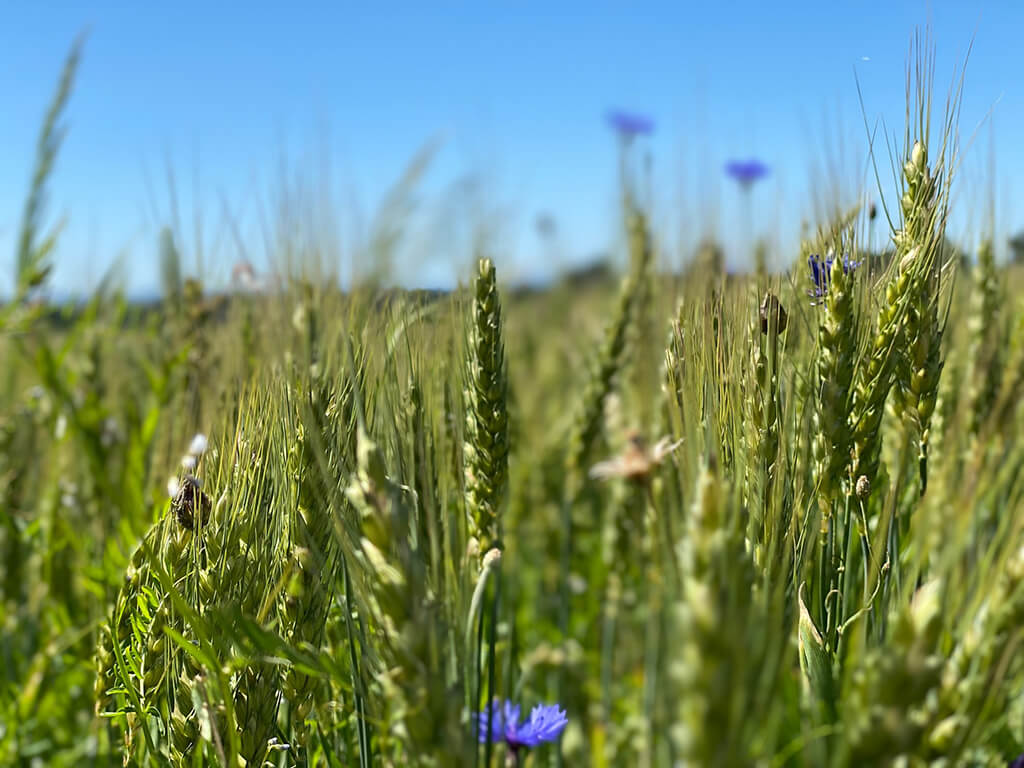
Which original grains are in our breakfast products?
VERIVAL Rye
We tend to associate rye with intensely fragrant sourdough bread from the bakery; we may still know it as a full-bodied ingredient in wheat pastries, but rye in muesli? An underestimated pleasure. Connoisseurs love it for its nutty, earthy flavour that brings you down to earth – early in the morning – as if rye were whispering to us, “Slow down.”
VERIVAL Einkorn
Nomen est Omen: Einkorn is named after the special arrangement of its seeds on the individual spindles, namely the grains stand there quite proudly individually. It is one of the oldest and most nutritious cereals of all and is only distantly related to wheat: the two varieties had only the same ancestor about 10,000 years ago.
VERIVAL Yellow oat grass
Oats are omnipresent and super popular. Not without reason: oats taste delicious without being overbearing and are convincing both as a base for warm porridge and as a basis for grainy muesli with freshly cut fruit. VERIVAL yellow oats has a few additional features that make it a little special among the oat varieties.
VERIVAL Spelt
Just a few centuries ago, spelt was at least as, if not more, well-known and sought-after than wheat in Austria, especially in Burgenland. Cultivation, however, proved to be more laborious and so its cultivation gradually declined. VERIVAL is reviving heritage spelt, because it really does have a lot to offer.
Is heritage spelt healthier than modern cereals?
The short answer: yes! But the longer answer is not particularly difficult to understand. In fact, it’s quite simple. They have a higher protein content, contain more minerals and more carotenoids. That is why we have chosen these types of grain as the basis for their recipe in our heritage grain mueslis. By cultivating and using so-called original grain varieties, we want to make an active contribution to preserving biodiversity and counteracting the impoverishment of varieties.
In addition, our original grain has a protective husk cover. This husk not only protects spelt, emmer and einkorn from environmental influences, but is also the basis for the resistance of this heritage grain. The hull, which is removed during dehusking, means that the grains contain fewer harmful substances and make them easier to digest.
While the gluten structure of the wheat grain has also been changed by new breeding methods and thus the gluten content has steadily increased, the original cereal varieties have been preserved in their original low-gluten form. As a result, they are better tolerated. Dietary fibre has also been better preserved in the original grain varieties – the benefits of dietary fibre are particularly noticeable in the human body during digestion.
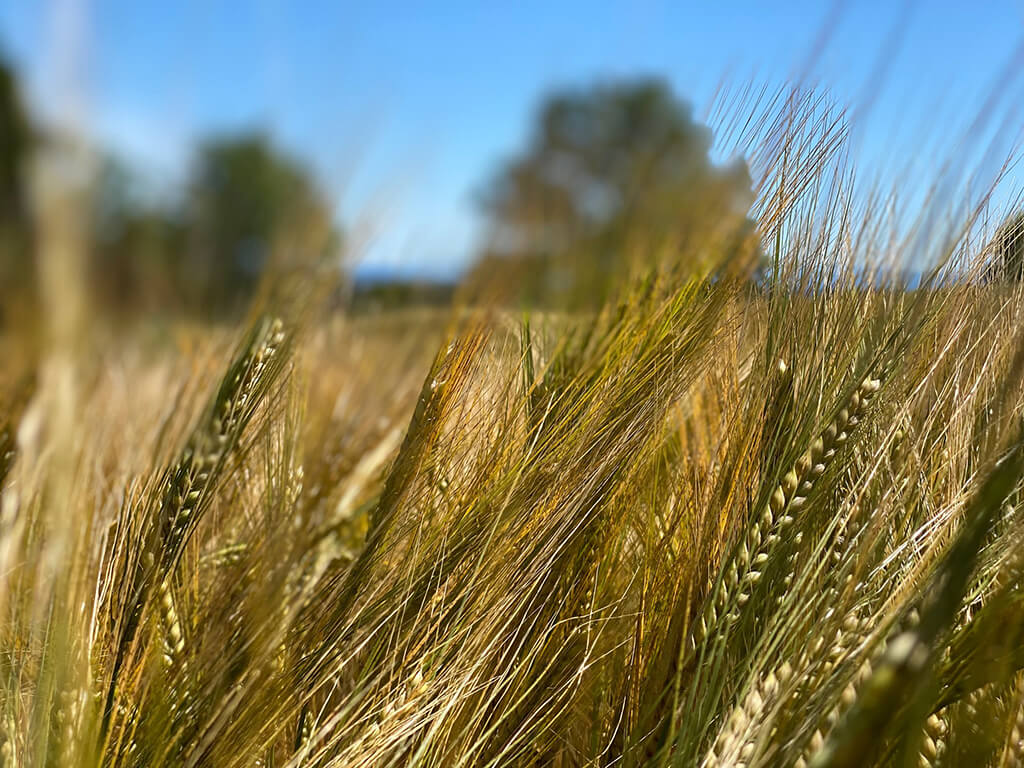
The ideal alternative to wheat is spelt, for example – it scores with more protein and more vitamins. And this heritage grain has another great characteristic: It provides a very good source for the formation of serotonin, also called the “feel-good hormone”, which attributes to it a mood-lifting effect.
Where do we grow the heritage grain at Verival?
For us, it is very important to be supplied regionally and personally. Personal contact is one of the most important components, as it gives us a lot of background information about the product. We also make sure that we are supplied from smaller, selected organic farms.
We work intensively with our farmers in all phases of cultivation, from seed procurement to care measures to storage. This enables us to achieve the highest level of transparency and traceability. The optimal choice of harvest time in coordination with production prevents long storage times of the harvested crop and thus contributes significantly to the quality of our products.
All this is an essential contribution to society for us – and our philosophy. Social responsibility is becoming an increasingly important issue, which is why we try to do our bit for climate conservation and biodiversity as best we can.
Which Verival products contain heritage grains?
Now that we’ve talked so much about heritage grains, you’ll want to know which of our products you can get them in. At Verival, we specialise in heritage grains in our many different mueslis. We now have 7 different varieties that you can enjoy for breakfast in the morning. Here you can find a recipe with granola and heritage grain muesli.
Verival Granola tartlets with yoghurt cream and berries
Ingredients
Tartlets
- 200 g Heritage Grains Muesli with Berries
- 100 g oats
- 100 g walnuts
- 4 tbsp linseeds, grinded
- 1 tsp cinnamon, grounded
- 100 g coconut oil
- 100 g maple syrup
Yoghurt Cream
- 300 g greek yoghurt
- 150 g curd
- ½ lemon zest
- ½ tsp vanilla, grounded
- 1 tsp maple syrup
Topping
- many different berries – e.g. raspberries, blueberries, strawberries
- a few banana chips
- a few edible flowers – e.g. daisies, lilac flowers
Instructions
- For the granola base, finely chop the walnuts and melt the coconut oil.
- Knead with all the other ingredients to a sticky mass.
- Spread the granola mixture into muffin tins and press well at the bottom and sides. This works best with moistened hands.
- Bake in the oven at 160°C hot air for about 15 minutes. Allow to cool briefly and then gently remove from the muffin cases with a spoon.
- For the cream, mix all the ingredients and pour into the granola cups. Decorate with berries and flowers.
Video
Starting with simple primal grain flakes and the Bircher Muesli with Heritage Grains, to the apple-apricot primal grain muesli, the berry heritage grain muesli, the 8-fruit heritage grain muesli, the nut-fruit heritage grain muesli and the nut heritage grain muesli – our heritage grain mueslis have something for everyone! And the best thing is that we now also offer XXL packs! Environmentally friendly and more muesli in one go – a dream come true.
Here you can learn more about heritage grain:
- #müsli
- #Urkorn
- #urkorn arten
- #Urkornmüsli
- #verival urkorn



